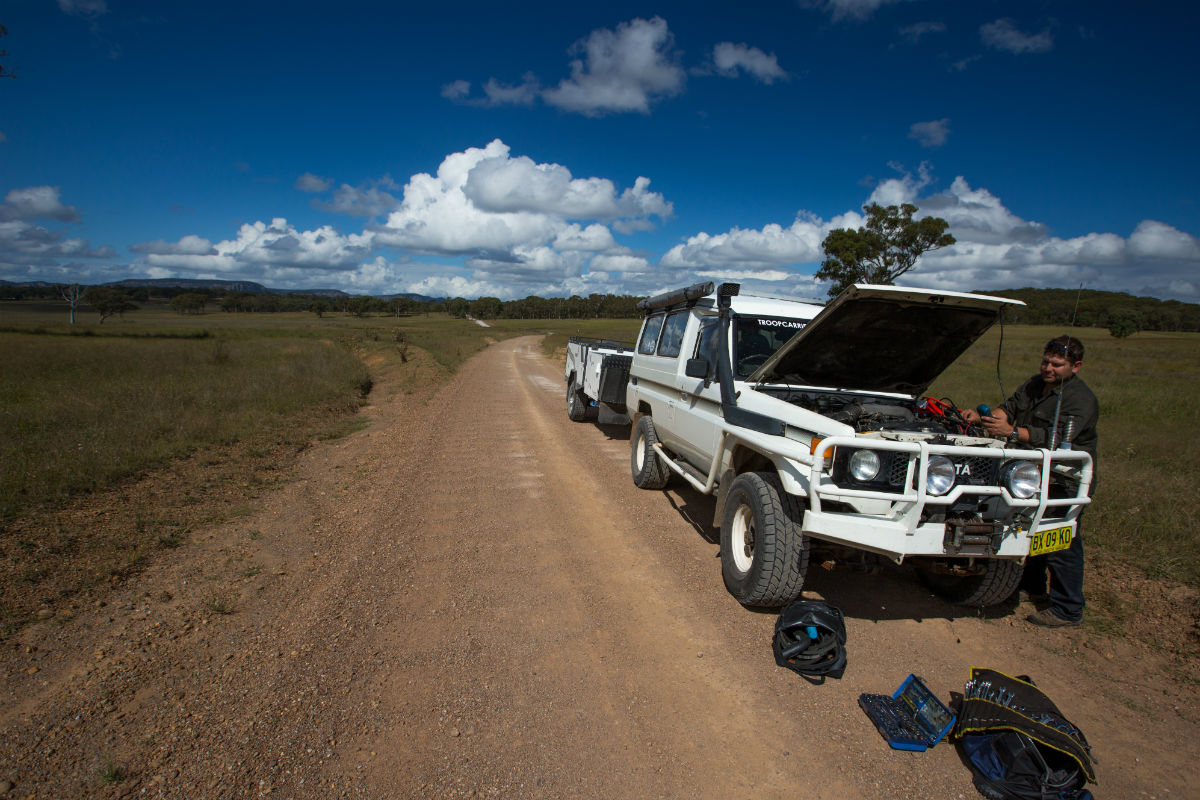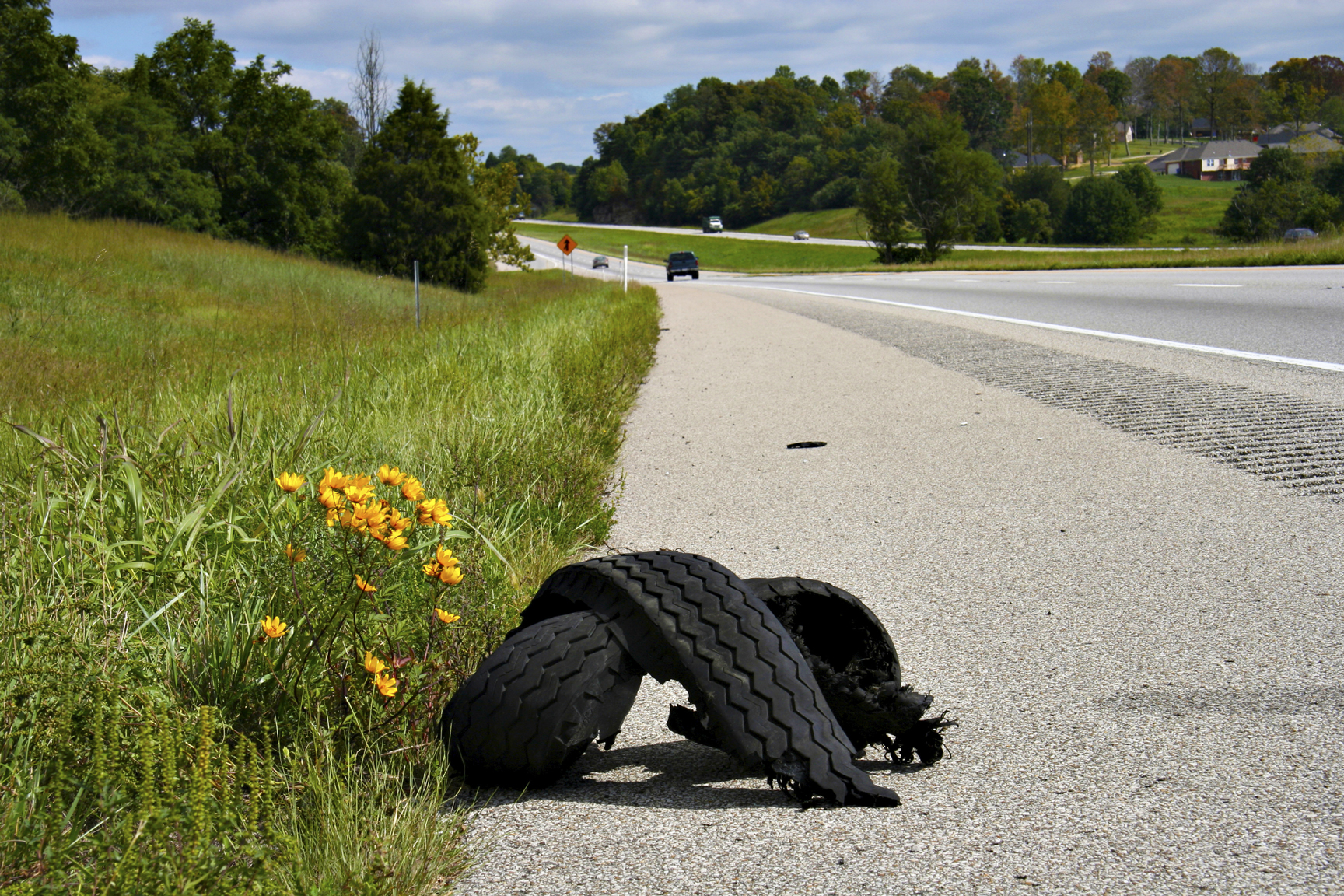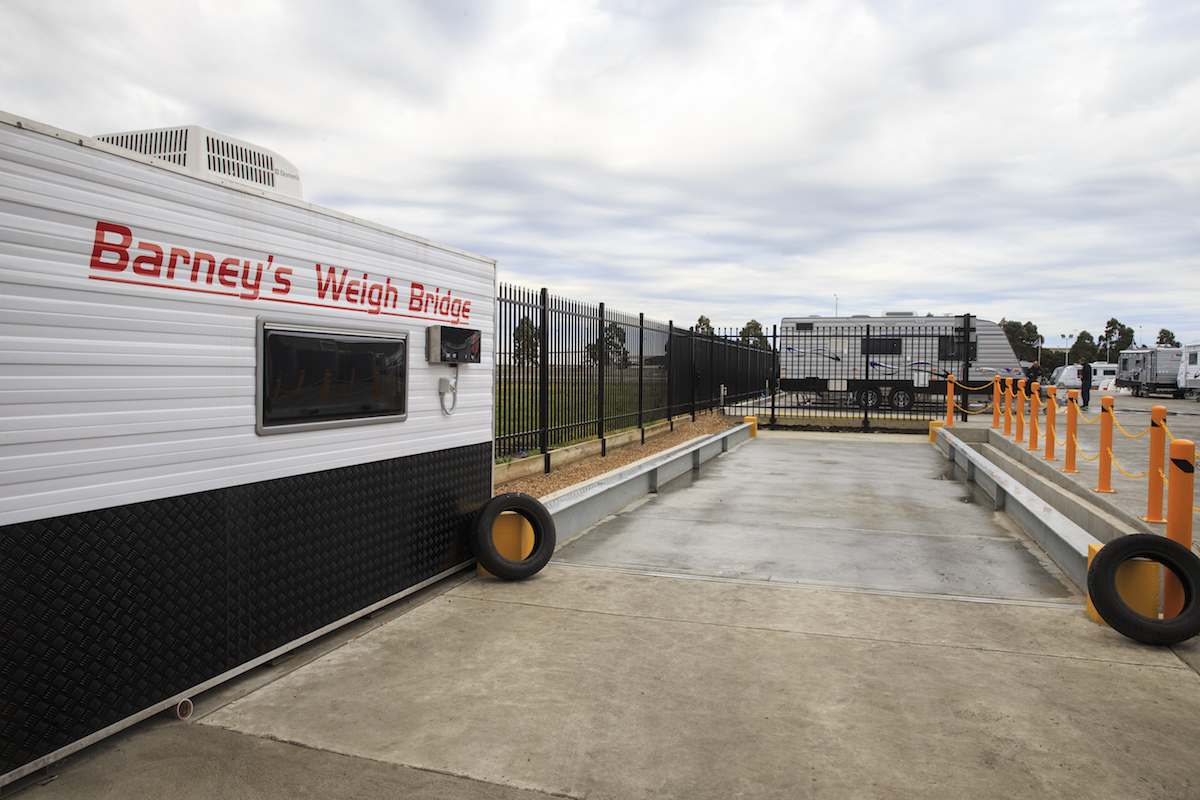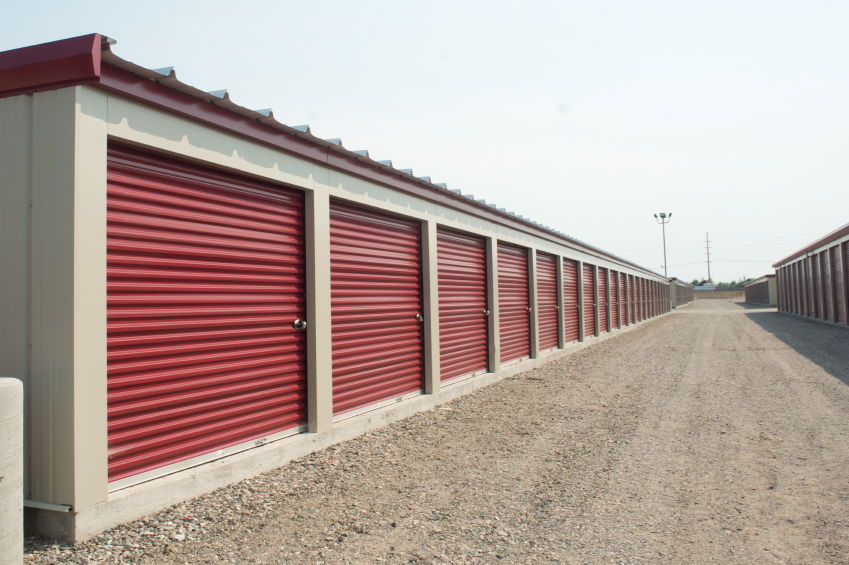We’re one of the few countries where people enjoy an ability to head off and carve out a little slice of paradise far from the madding crowd and chaos of modern society, but with that privilege is responsibility. Break down in suburbia and you’re up for a tow ride home and a tight month paying the bills. Break down on some side track in a long-forgotten part of Australia and you better have an exit strategy. Rather than a re-hashed list of the spares you should take we’ve examined 10 key areas requiring your attention.
1. COMMUNICATION
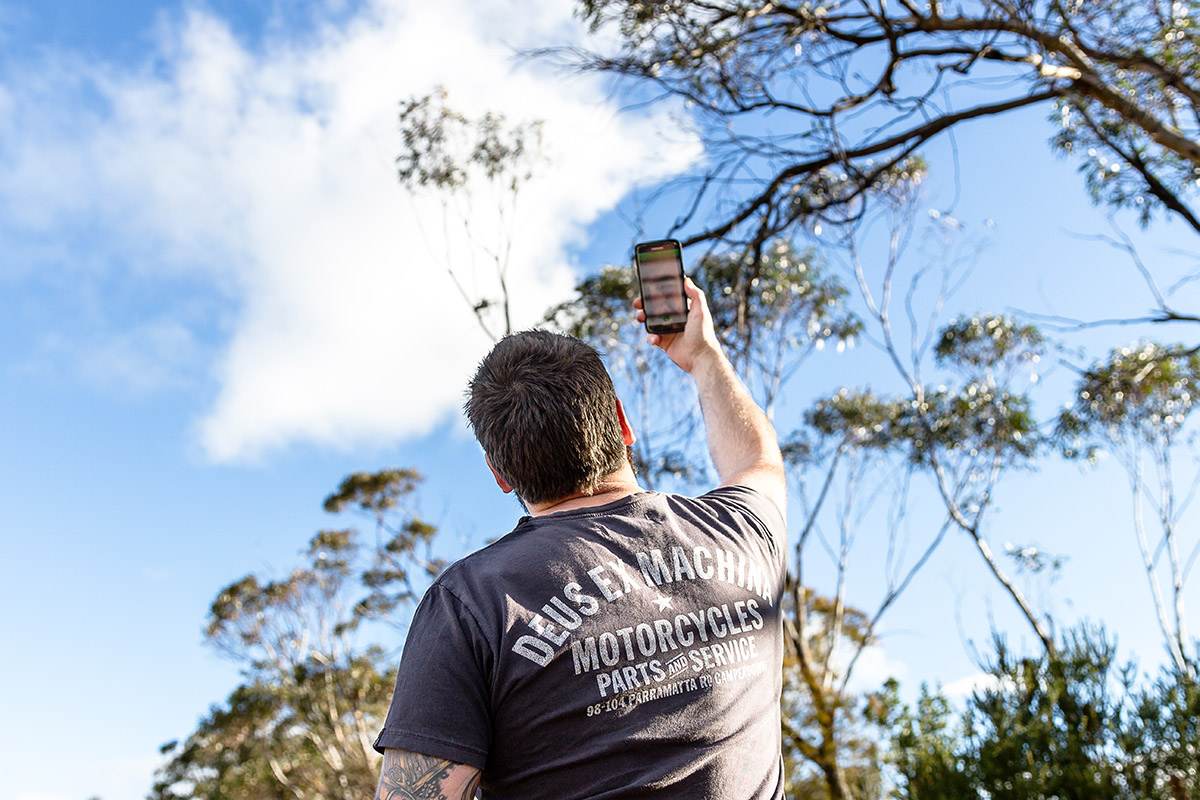
Communications can come in many forms and need to be appropriate for the destination you’re heading to. If you’re off camping at the local state forest or national park for a weekend, a UHF radio is more than enough to reach out for help. If you’re travelling anywhere further than a few hours from a major city, satellite phones and/or personal locating beacons (PLBs) are an absolute must.
2. NAVIGATION
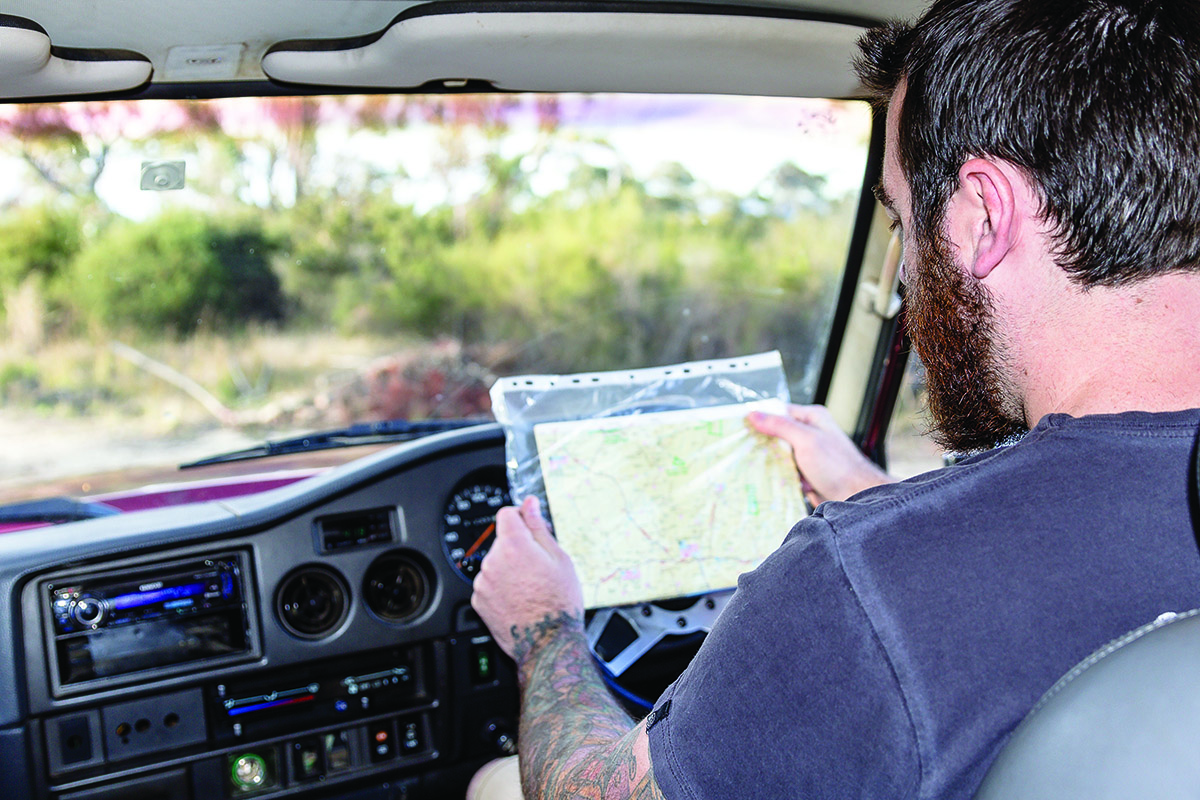
In almost all situations, you’re better off sticking with your 4WD if something goes wrong, but if help is just over the hill, it can be damn tempting to hoof it there and get yourself out of trouble. The problem comes into knowing just how far off help might be. This is where reliable navigation can come into play. Over that next hill might be a service station, a campground full of help, a river full of fresh water, or 100km of sun-bleached nothing.
Electronic navigation like standalone GPS units and smartphone apps are the easiest solution as they’re able to accurately pinpoint your location and can have detailed information on nearby areas, although they aren’t without their issues, like battery life and susceptibility to damage. If you’re travelling remote, a set of paper maps should always be used as a backup.
3. FIRE EXTINGUISHER
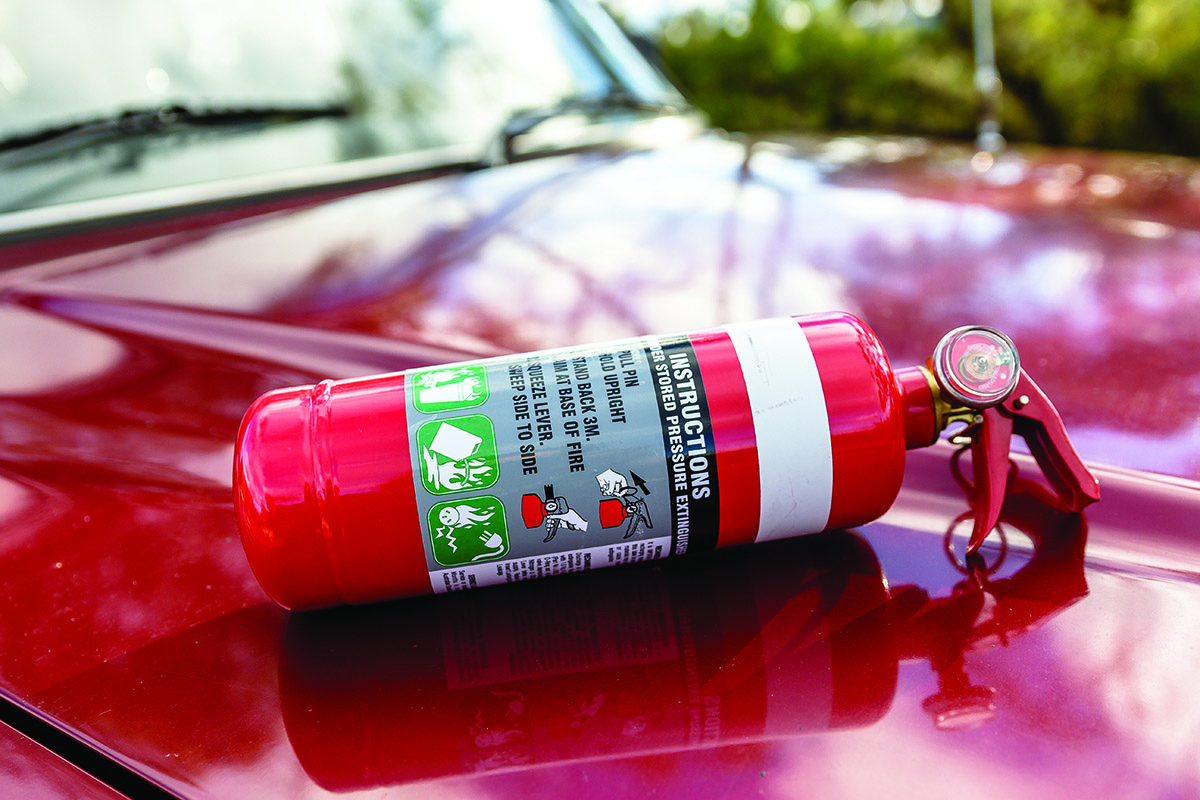
You don’t need to travel far down a remote track to find the shell of at least one burnt-out 4WD. A fire extinguisher at hand can be the difference between a life-altering fire, and getting your fridge fixed under warranty.
There are a few things to consider with fire extinguishers, and the abundance of cheap items makes people far too complacent. The general rule is small extinguishers won’t save a vehicle, they’ll just give you time to grab the kids and any important gear out of the back. You’ll want a small extinguisher easily accessible by both driver and passenger, with a large unit in your storage area capable of taking on engine bay fires. If you’re lugging around a camper trailer a third one should be near the cooking area.
5. SHELTER
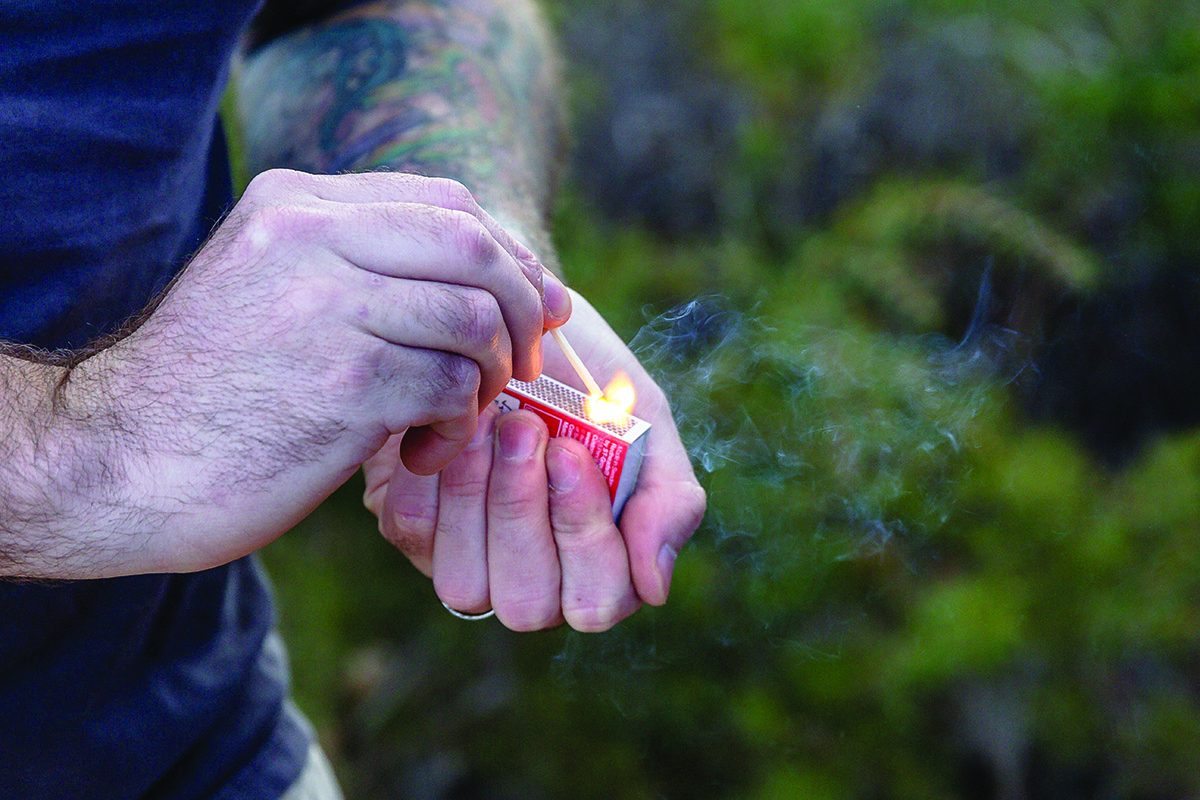
There’s an old survival guide called the ‘rule of threes’. Three minutes without air, three hours without shelter in a harsh environment, three days without water, and three weeks without food. If you’re not planning on driving your 4WD under water the first point is moot, and if you follow every other step accurately the last is as well (surprisingly, keeping emergency food is way down the priority list).
So that just leaves water and shelter. If you’re parked up with your camper trailer or even just your 4WD you’ll have plenty of protection from the sun and heat, making coldness the serious issue. A heavy blanket, or preferably a quality sleeping bag, per person is a vital first step but you’ll also need the ability to build a fire, not only for heat but as a signal. When it comes to emergencies, ‘two is one, and one is none’.
So aim for at least three methods of building a fire to be safe. A box of matches is an easy one, arcing out jumper leads is another, and a cigarette lighter will get you across the line for all three.
6. WATER
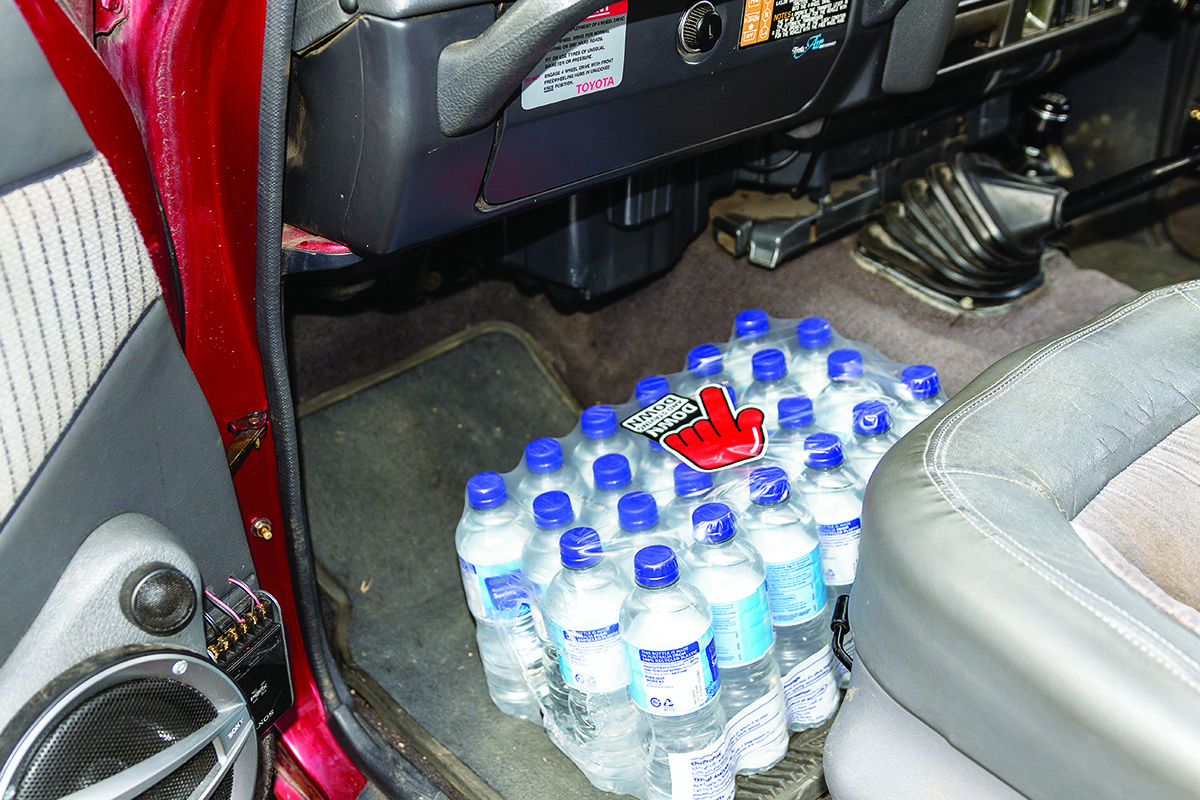
This one should come as a no-brainer but water is pretty vital in an emergency situation. It might be tempting to chuck a few 600ml bottles of Mount Franklin in the 12V fridge, but when you actually start adding up your water needs things get a little more complicated. If you spring a leak in your cooling system you could potentially dump close to 20L of coolant, that’s around 34 water bottles.
You’ll also want to factor in drinking water for all the passengers on board. The rule is 3Lper person, per day, and that’s not counting cooking and cleaning. If you’re doing a desert crossing or remote touring, a family of four can easily go through 50L of water in four days. When you include 20L for the vehicle in case of emergency, your water storage needs start adding up and camper trailers or caravans with large, fitted water tanks become very tempting.
7. FIRST AID
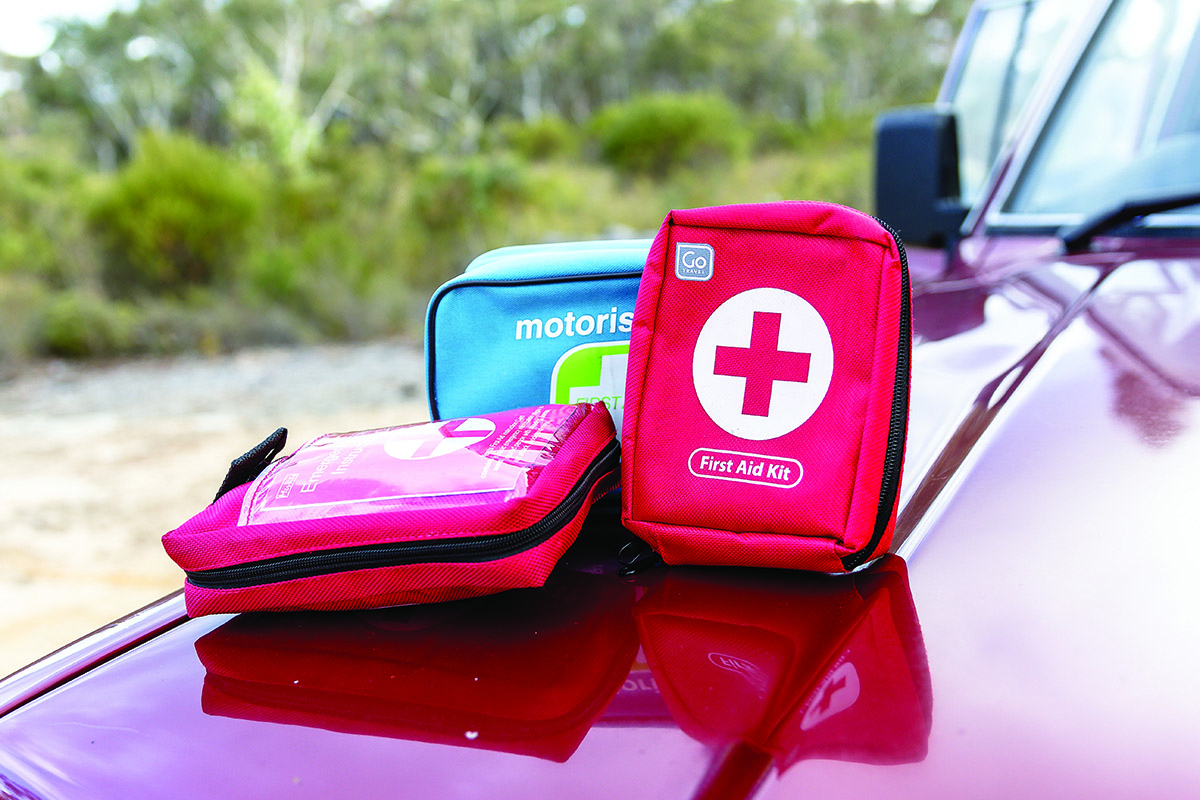
A first-aid kit is seen as a magic wand by 4WDers who believe as long as you’ve got a box full of Band-Aids, nothing bad can happen. The truth is a first-aid kit is just a box of tools. In some cheaper kits the tools inside just aren’t up to the task, and in all situations the tools are completely useless without the knowledge of how to use them.
Generic first-aid courses are generally centred around stabilising someone until help can arrive, but in remote conditions help can be literally days away. Many first-aid trainers now offer courses for remote situations that go far more in-depth and can prepare you for the worst case scenarios that might happen.
8. WINCH
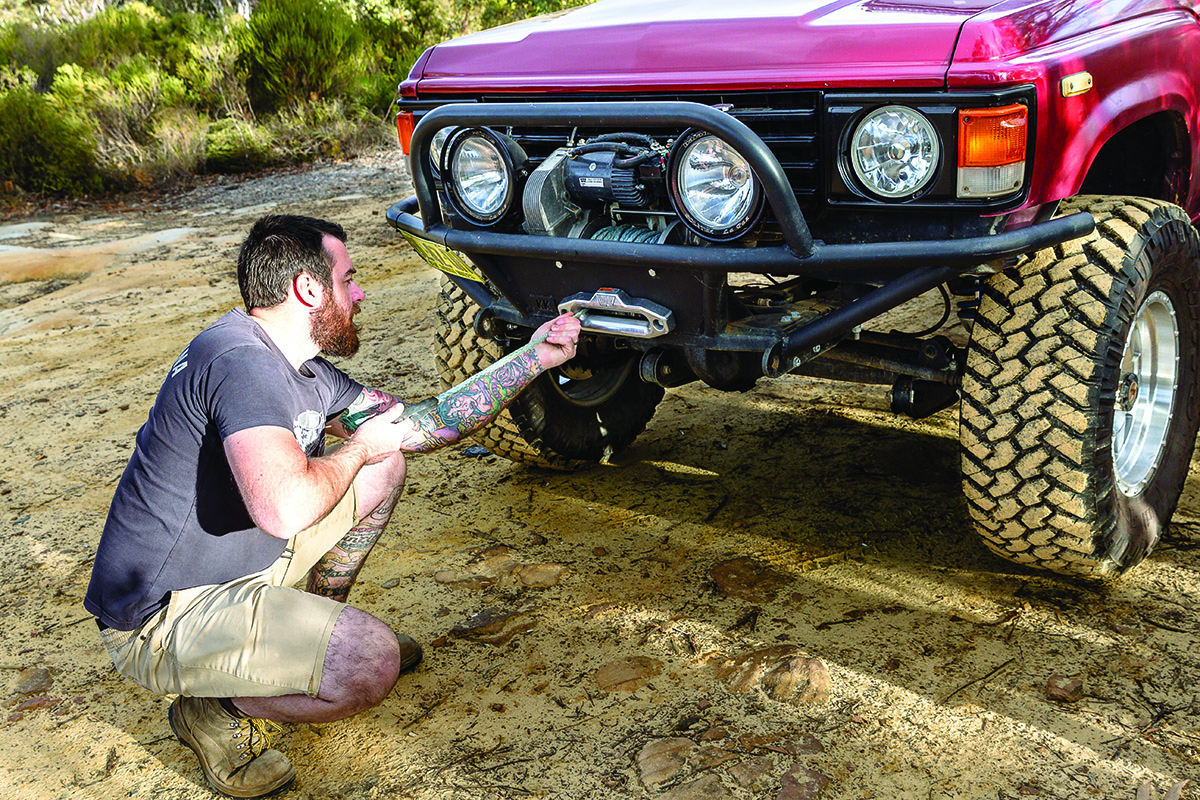
A 12V winch is one of those bits of gear that gets lumped into the wrong category. At face value it’s easy to look at it like a set of lockers or mud tyres, something to get you further down the track. The reality is that they’re one of the most essential bits of emergency gear money can buy. A 12V winch, a couple of pulley blocks and a few extension straps should find their way into any 4WD. If your trailer slips sideways off a steep track they can be used to get it back on solid ground; they’re also able to right a rolled 4WD and get you back on the tracks, lift fallen objects off people, and perform running repairs.
8. SPARE PARTS

It’s tempting to get carried away and bring every spare part imaginable but then you start running into GVM issues and seriously overloading your 4WD. If it’s light, cheap, or easy to repair yourself then chuck it in. Spare hoses, belts and filters take up very little room and add even less weight so are a no-brainer.
9. TOOLS
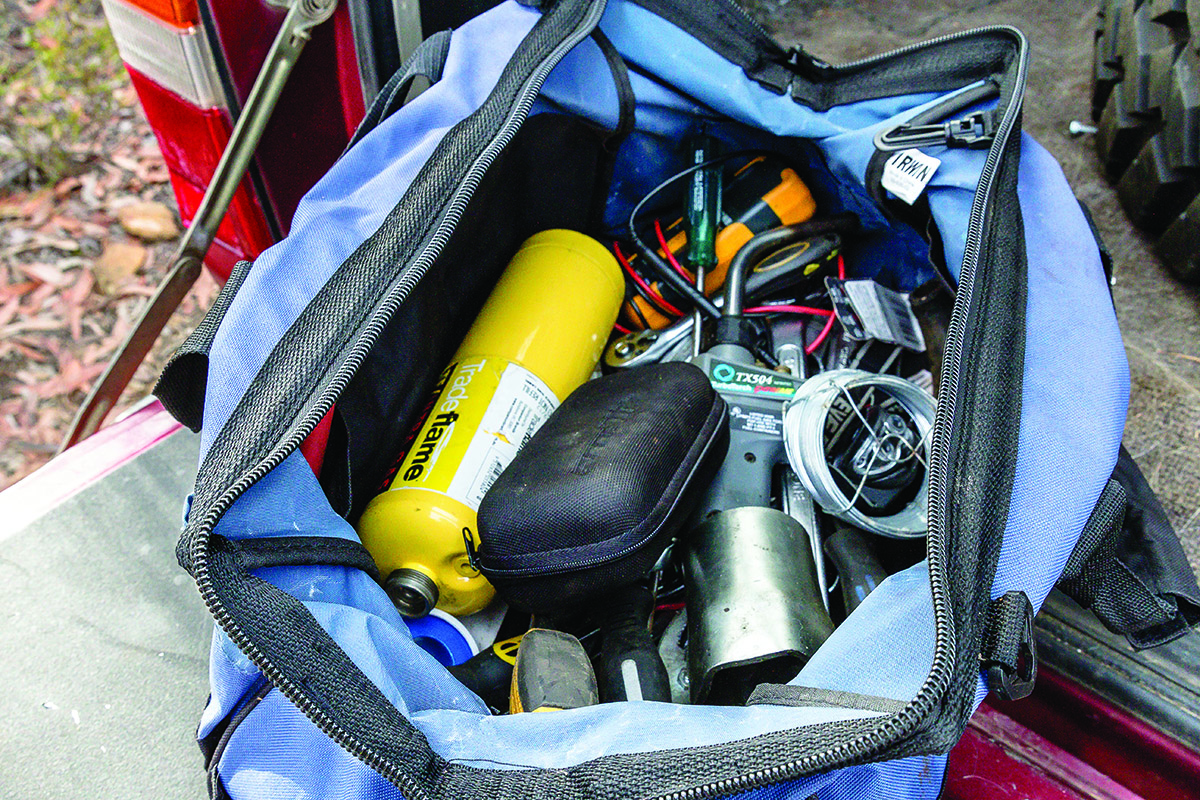
It’s easy to get caught up in a shopping spree and buy every tool known to man for your next adventure, and hey, who doesn’t want a pull scale for setting bearing pre-load and a depth gauge in case you need to readjust your diff gears halfway up the Canning Stock Route. The problem is all that stuff adds weight and takes up space.
If you’re in a bind it’s not going to matter if your wheel bearings were tightened up with the proper socket, or a hammer and chisel; the important part is being able to do the repair to get you back on the track. Make a list of the failures that might happen and what tools are required to do the job. Then try and cut that list in half. You’ll find a lot of tools can perform double duties. In a perfect world, we’d all have a magic toolbag with every tool imaginable in it, but you’re far better off having the tools needed to do the job, rather than a bunch of speciality gear. Offroad tool kits don’t need to be the fanciest on the tracks. Everything you need to do the job and nothing more.
10. A PLAN
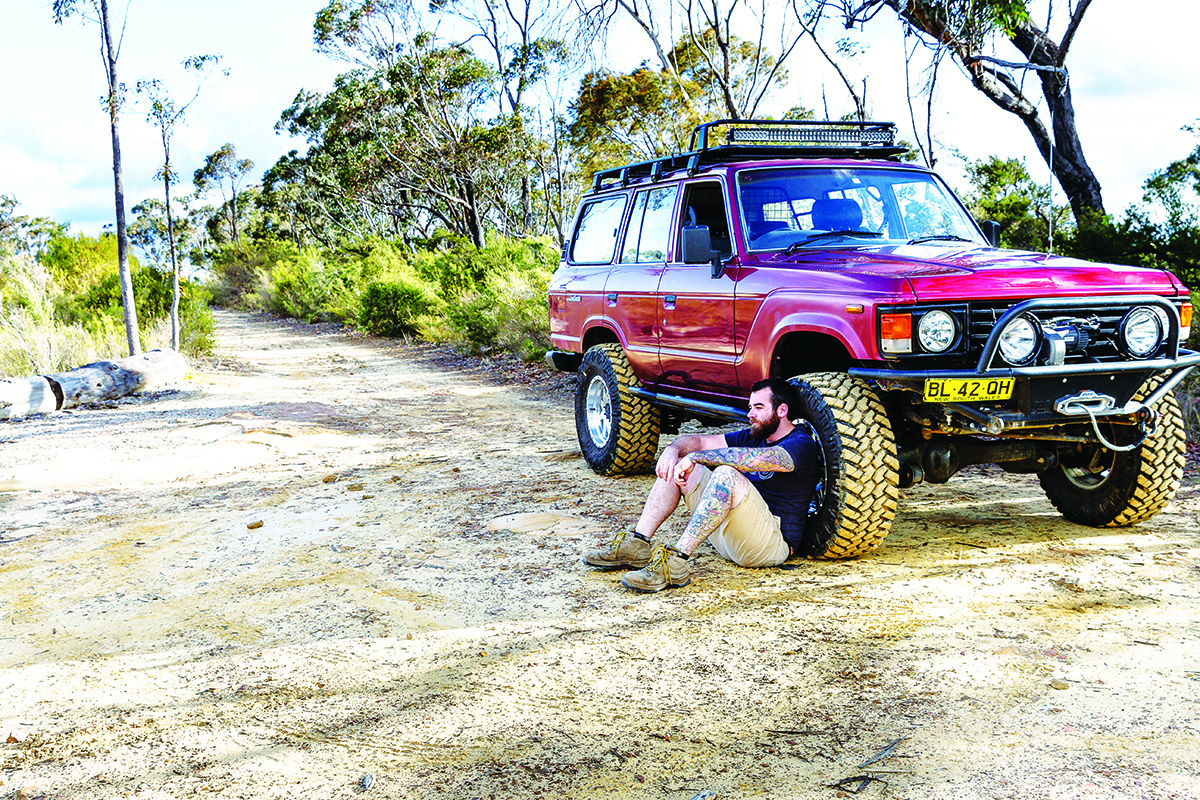
There’s an old saying, ‘we don’t rise to our level of expectations, we fall to the level of our training’, and it couldn’t be any truer than with remote touring. If you have a plan and know exactly what to do if something goes wrong, then you’re in a much better situation than if you plan on winging it and hoping for the best.
The next time you’ve got a free 10 minutes sit down with a notepad and pen and run through the likely issues you could face out of phone reception and think about how you’d handle each one.

